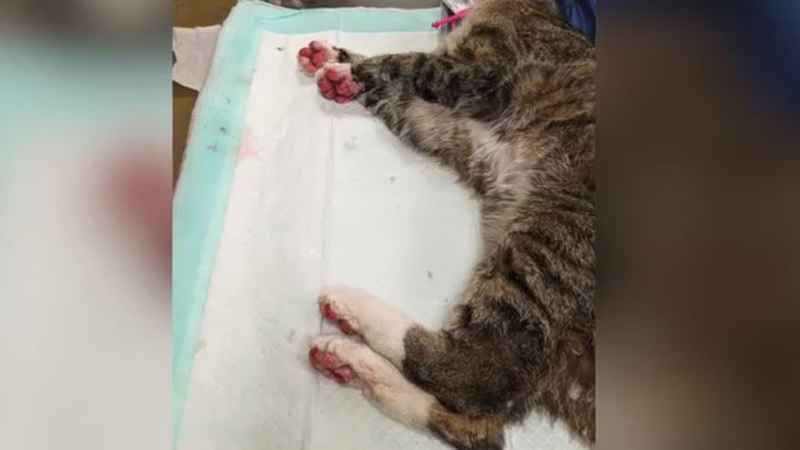Here’s how to keep your cat or dog safe from frostbite during extreme cold
[anvplayer video=”5004879″ station=”998122″]
Minnesota veterinarians are expecting an uptick in frostbite cases among dogs and cats as extreme cold sets in across the state.
The Animal Humane Society in Woodbury recently took in a stray cat named Zeke who suffered frostbite on both ears and all four paws.
"His paw pads were completely eroded down. They were red, raw and bleeding," said Dr. Angelica Dimock, the managing shelter veterinarian. "Extremely painful, if you can imagine."
Dr. Dimock said she is concerned about frigid temperatures in the Twin Cities over the next 10 days, with wind chills expected to dip down to minus 30 degrees at some points.
KSTP Meteorologist Jonathan Yuhas said dogs can get frostbite on their paw pads and ear tips in less than 15 minutes in these temperatures. Older dogs may be prone to frostbite in even shorter periods of time.

The Animal Humane Society in Woodbury took in a cat named Zeke that suffered frostbite on his ears and all four paws.[Animal Humane Society]
"If you go for even a walk around the neighborhood, imagine putting your bare feet on that ice-cold pavement. It’s kind of the same," Dimock explained.
Veterinarians recommend only taking dogs outside for a few minutes at a time in this type of weather. If there are outdoor cats in your neighborhood, the Animal Humane Society urges Minnesotans to make cat dens for them.
"It just needs to be covered and lined so the cat can just walk in, sit inside there and get away from the elements," said Astrid Kammueller, site manager with the Animal Humane Society. "You can set them out in the woods where you see the cats, you can set them around houses, barns, pretty much anywhere you know you’ve got a colony of cats living outside."
If you suspect your pet has frostbite, you can apply a warm, dry towel but do not squeeze or rub the affected areas as that could cause more damage.
As for Zeke, he will lose parts of both ears because of his bout with frostbite but his paws are now back to normal after intensive bandaging and antibiotics.
"Frostbite can be really hard to watch but honestly most cases are OK in the end. It just takes weeks to months to get to that okay part," Dimock said.
Zeke has recovered and is now available for adoption. Fill out an application on the Animal Humane Society’s website if you would like to take him home.